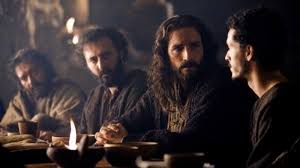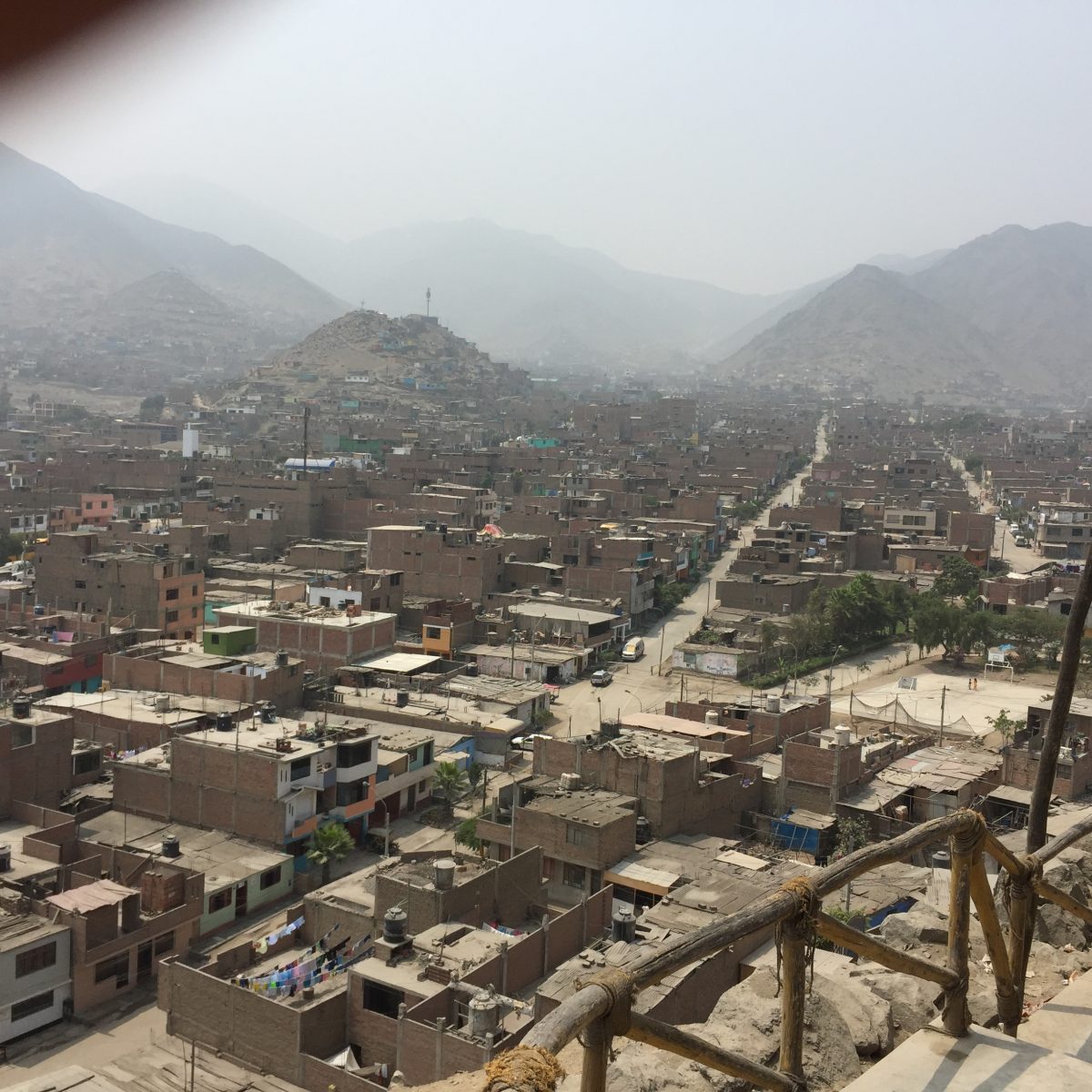Background Passages: Ecclesiastes 3:11, Isaiah 40:29-31 and Colossians 1:15-20
I saw this floating story around the social network this week in a Facebook post shared by my friend Kim Pressly. It’s a story about a visiting pastor who attended a men’s breakfast in the middle of a rural farming community, not unlike the one in which I was raised.
An older, sun-baked farmer, decked out in faded bib overalls was asked to say grace for the morning breakfast.
“Lord, I hate buttermilk”, the farmer began. The visiting pastor opened one eye to glance at the farmer and wondered where this was going. The farmer loudly proclaimed, “Lord, I hate lard.” Without missing a beat, the farmer continued, “And Lord, you know I don’t much care for raw, white flour.”
The pastor once again opened an eye to glance around the room and saw that he wasn’t the only one feeling a bit uncomfortable with the farmer’s prayer.
Then the farmer added, “But Lord, when you mix them all together and bake them, I do love fresh, warm biscuits.
“Lord, when things come up that we don’t like, when life gets hard, when we don’t understand what you’re saying to us, help us to just relax and wait until you are done mixing. It’ll probably be even better than biscuits.
“Amen.”
I suspect that little anecdote spoke to me when I first read it this week because there is a lot going on in this world that I don’t like. Current realities make life difficult. I suppose we own much of it. We’ve let those difficulties divide us as a people more deeply than I ever thought possible. The parts we don’t own, those things beyond our control, we sure don’t understand.
I hate what is happening to our country, our world, our churches, our lives. It is too often unattractive, unhealthy and unChristian. I don’t know about you, but I find myself growing tired of the buttermilk and the lard and the raw, white flour.
So maybe that old farmer is right. “God, help us wait until you are done mixing.”
I suppose the first Bible verse that comes to my mind is this:
“He has made everything beautiful in its time. He has also set eternity in the human heart; yet no one can fathom what God has done from beginning to end.” (Ecclesiastics 3:11)
We can’t always see what God has done, nor can we always see what he is doing right now. We do know there is beauty in everything God has created. He orders all things. When we make our mistakes, he is constantly realigning our path with his will. When our world ventures off course, he is there to hold it together until his time is right.
We may not always understand why God allows for things to happen in our lives that cause pain, fear, and worry. However, we can trust that he is constantly at work to reveal his goodness and love amid the troubles of the day.
So, when I don’t like the buttermilk, I just need to realize the Master Baker is still in the kitchen.
If I can accept that God is in control and working through the mess on our behalf, then I can turn to Isaiah 40:29-31 and rest from the struggle and draw strength from his presence.
“He gives strength to the weary and increases the power of the weak. Even youths grow tired and weary and young men will stumble and fall; but those who wait upon the Lord will renew their strength. They will soar on wings like eagles, they will run and not grow weary. They will walk and not grow faint.”
What does it mean to “wait upon the Lord?”
Because we’ve spent so much time in the waiting room of a doctor’s office or in the line at the Department of Motor Vehicles to get our license renewed, we tend to think “waiting” is a passive experience. That we must somehow sit on our hands until God chooses to do something to fix the situation in which we find ourselves. In scripture, however, waiting on the Lord is a call for action.
When these words were spoken by God through Isaiah, the Israelites were in exile in Babylon and Jerusalem lay in ruins, it’s walls and buildings mere rubble. Their hopes and dreams shattered. Tired of their situation, they complained that God no longer seemed interested in their well-being; that he was disinclined to seek justice on their behalf.
Isaiah paints a different picture of God the Creator. He speaks of God giving power to those who are fainthearted and weary. He counters their complaint that God is too small of the situation. Isaiah reminds them, “Have you not known? Have you not heard? The Lord is the everlasting God, the Creator of the ends of the earth.”
God, Isaiah proclaims, “gives power to the faint and strengthens the powerless.” God is ready to share his power with those who call upon his name. All that is required of them is to “wait on the Lord.”
They were not to sit idly by twiddling their thumbs until God acted on their behalf. They were to wait upon him in confident trust and expectation that he was at work to restore them to the place he called them to be. To wait on the Lord is to actively put our hope and trust in him.
Hope, in a biblical sense, is not desperation. It is living out each day in the image of Christ as his hands, heart and voice. It is taking all we know of Christ and his teachings and doing our part to influence a world that’s trending in the wrong direction. It is actively serving and ministering to the hearts of those we encounter along the way.
Despite the turmoil that surrounds us, we are called to a hopeful expectation that God is still in the kitchen mixing together all the ingredients of the life he has called us to live in Him.
If we do our part in the waiting time, God promises to renew our strength. One commentary I read explained that the word used for “renew” in this passage is closer in translation to the word “exchange.” I like that mental picture.
Those who wait on the Lord do more than renew their strength, they exchange, instead, their faint or faltering strength for the unfailing power of God. Our weakness is replaced by his strength…our frailty with the power of the Creator God who never grows tired.
The beautiful imagery that Isaiah used gives perfect illustration to the uplifting power of God.
“They will soar on wings like eagles.”
An eagle soars to great heights not on the power of his own wings, but on the rising air currents that lift it higher and higher. The eagle’s own power gets him airborne, but to soar he needs the wind. Once he finds the current, soaring is effortless.
Our waiting on the Lord, our confident hope, is the personal action that gets us airborne. We soar when we find the Spirit’s wind that lifts us to new heights. When we find God’s spirit with us, soaring is effortless. We will not grow weary of the task laid before us.
Scripture reminds us that God is always mixing things together, working to bring good from every circumstance for those who love him and are called for his purpose. It is God who holds it all together.
The world is in a mess right now. I don’t like what I see and hear. It seems everything we hold dear is falling apart at the seams.
There is still a big part of me, however, that believes God is at work in the chaos.
Paul indicated as much to his letter to the Colossian church.
“He is the image of the invisible God, the firstborn of all creation. For by him all things were created, in heaven and on earth, visible and invisible, whether thrones or dominions or rulers or authorities — all things were created through him and for him. And he is before all things, and in him all things hold together…For in him all the fullness of God was pleased to dwell, and through him to reconcile to himself all things, whether on earth or in heaven, making peace by the blood of his cross.” (Colossians 1:15-20)
Those who wait on the Lord put our confident trust in Christ, the image of the invisible God. That means in times of trouble we can fall back on his teachings to guide us because he has preeminence or authority over all things.
And, here is the part of this passage that speaks to the farmer’s prayer: “…in him all things hold together…and through him to reconcile to himself all things…making peace by the blood of his cross.”
The farmer got it right. All the things in life that I hate, the things I fear are tearing us apart, God knows about all of them. He is in preeminent and is holding life together. Keeping it all in the mix until the time when he can reconcile or bring everything back together to himself. Until we find the peace available through his sacrifice on the cross.
Here’s the deal though. Those things in the mix require one more ingredient. For God to turn those things I hate into something worth tasting, those who wait upon the Lord must be folded into the batter. Confidently expecting God to work in and through us to accomplish his plan and purpose, not only in our lives, but in the world around us. His work through us.
So, don’t grow weary as you look upon the complicated world around you. Our Lord is mixing and holding it all together. Wait upon the Lord. His work…our work…is not done.
I confident when he’s finished, whatever he’s cooked up will be better than biscuits.





